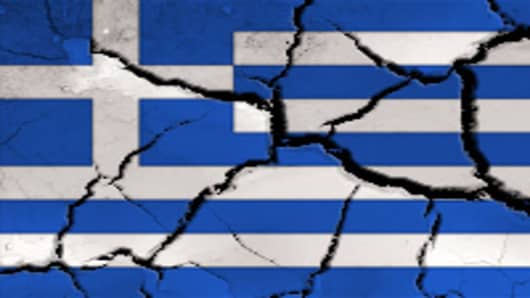European leaders are pushing to impose measures that would ensure the Greek government lives up to its promise to deliver €50 billion ($70 billion) in privatization proceeds, amid skepticism that Athens can carry out the sell-offs.
The privatization plan, spelt out in detail for the first time by the Greek government on Monday, has become a central issue in Europe-wide deliberations over how to overhaul Greece's faltering €110 billion bail-out programme.
With political opposition to new loans to Greece growing in several northern eurozone countries and the European Central Bank adamantly against any restructuring of Greek debt:, European leaders see the privatization plan as the best hope of staving off insolvency.
Officials involved in the discussions believe far more than €50 billion could be raised in sales of state-owned assets, with estimates ranging from €250 billion to €300 billion - or almost all of Greece's outstanding debt.
But several diplomats and officials said repeated failures by Athens to start such sell-offs have convinced them of the need to impose new conditions on the program, including the possibility of an international agency running the divestments. "The state is not functioning," said one senior European diplomat.
Officials familiar with the deliberations said the idea of attaching conditions to Greece's privatization program was one of the central topics at a secret meeting of some European Union finance ministers in Luxembourg this month.
Greece's ability to manage the program on its own was called into question again on Tuesday when the government's main opposition party rejected new austerity measures proposed by George Papandreou, the Greek prime minister, and questioned the way he was proceeding with privatizations.
EU officials have emphasised that they want cross-party agreement on any overhaul of the bail-out.
The drive for an outside agency to run Greek privatizations is being spearheaded by the Netherlands, whose finance minister, Jan Kees de Jager, raised the issue at a meeting of EU finance ministers last week. Under the plan, Greek assets would be put into a fund managed by international experts.
Such a plan is likely to raise opposition in Greece, but Mr De Jager said such considerations should be set aside. "Right now, we're beyond sensitivities. Our common predicament is simply too serious," he said.
Germany has signalled its support for such a plan but is reluctant to publicly back the approach for fear of provoking the Greek opposition.
Germany itself used a similar agency, called Treuhand, when it sold off state assets held by the former East Germany in the 1990s. Officials said it is not the only plan under consideration, however.
Finland is pushing for Greece to place state assets into a single government-owned company that could then be used as collateral for another round of EU loans - an approach that could prove more palatable for Athens.


